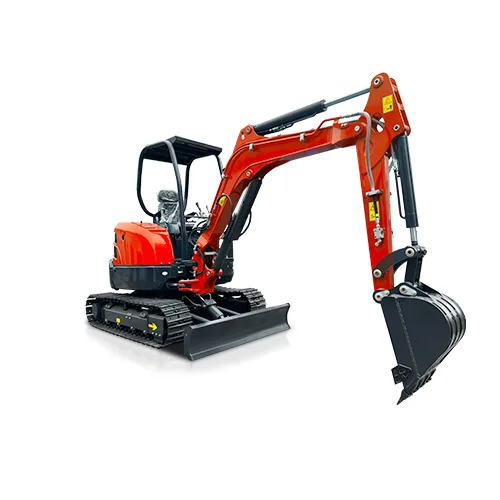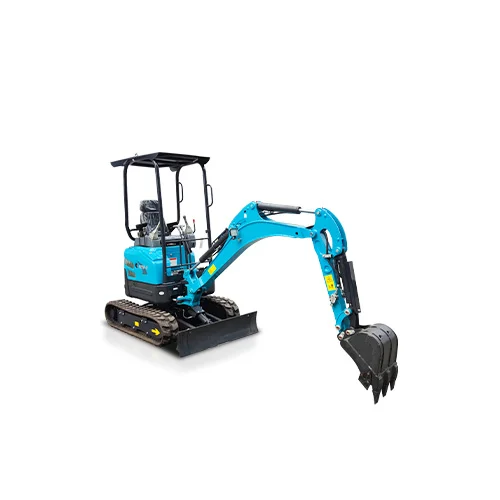Introduction

In the realm of agriculture, the humble farm excavator stands as an iconic symbol of progress and efficiency. Over the decades, innovations in farm excavator technology have revolutionized the way farming is conducted worldwide. From manual labor to mechanization, and now to the era of smart, connected machinery, the evolution of farm excavators continues to shape the future of agriculture. This blog explores the latest advancements in farm excavator technology and their transformative impact on modern farming practices.
The Evolution of Farm excavators
Since their inception in the late 19th century, farm excavators have undergone remarkable transformations. Initially steam-powered behemoths, they evolved into diesel-powered workhorses capable of handling various agricultural tasks. Today, farm excavators are equipped with cutting-edge technologies such as GPS guidance systems, precision farming tools, and autonomous capabilities, marking a significant shift towards increased efficiency and sustainability in agriculture.
Precision Farming and Smart excavators
One of the most significant advancements in farm excavator technology is the integration of precision farming technologies. GPS guidance systems enable farmers to precisely navigate fields, optimize planting patterns, and minimize overlap, thereby reducing input costs and maximizing yields. Smart excavators equipped with sensors and actuators can autonomously perform tasks like seeding, spraying, and harvesting with unparalleled accuracy and efficiency, freeing up valuable time for farmers to focus on other critical aspects of their operations.
Sustainable Farming Practices
Innovations in farm excavator technology are driving the adoption of sustainable farming practices worldwide. Features such as variable rate application (VRA) allow farmers to apply fertilizers, pesticides, and water precisely where and when they are needed, minimizing waste and environmental impact. Additionally, the development of electric and hybrid excavators promises to further reduce emissions and reliance on fossil fuels, contributing to a more sustainable agricultural future.
Connectivity and Data-driven Agriculture
Modern farm excavators are increasingly connected to the internet and equipped with advanced telematics systems, enabling real-time monitoring and data collection. Through cloud-based platforms, farmers can access valuable insights into soil health, crop performance, and equipment diagnostics, empowering data-driven decision-making and optimizing farm operations. Furthermore, predictive analytics algorithms can anticipate maintenance needs, preventing costly breakdowns and downtime.
Addressing Challenges and Opportunities
While innovations in farm excavator technology offer immense potential for improving efficiency and productivity in agriculture, they also present challenges and opportunities. High upfront costs and the digital divide in rural areas may hinder widespread adoption, underscoring the importance of accessible financing and infrastructure development. Moreover, concerns about data privacy and cybersecurity must be addressed to ensure the responsible use of connected technologies in farming.
The Role of Telematics in Farm excavators
Telematics systems play a pivotal role in modern farm excavators, enabling seamless connectivity and data-driven decision-making. These systems consist of hardware devices installed in excavators, coupled with software platforms that collect, transmit, and analyze data. By integrating sensors and GPS technology, telematics systems provide farmers with real-time insights into various aspects of their operations, including excavator performance, fuel efficiency, and field conditions. This data empowers farmers to optimize route planning, monitor equipment health, and improve overall productivity. Additionally, telematics enable remote diagnostics and predictive maintenance, allowing farmers to address issues proactively and minimize downtime. Overall, the integration of telematics in farm excavators enhances efficiency, sustainability, and profitability in modern agriculture.
Technological Features in Modern Farm excavators

| Feature | Description |
|---|---|
| GPS Guidance Systems | Enables precise navigation of fields, optimized planting patterns, and minimized overlap, reducing input costs and maximizing yields. |
| Variable Rate Application | Allows farmers to apply fertilizers, pesticides, and water precisely where and when they are needed, minimizing waste and environmental impact. |
| Telematics Systems | Provides real-time monitoring and data collection, empowering data-driven decision-making and optimizing farm operations. |
| Autonomous Capabilities | Allows excavators to autonomously perform tasks like seeding, spraying, and harvesting with unparalleled accuracy and efficiency, freeing up valuable time for farmers. |
Conclusion:
In conclusion, innovations in farm excavator technology are revolutionizing the agricultural landscape, driving increased efficiency, sustainability, and connectivity. From precision farming tools to smart, connected machinery, the evolution of farm excavators continues to transform the way farming is practiced globally. By harnessing the power of technology, farmers can overcome challenges, seize opportunities, and cultivate a more prosperous and sustainable future for generations to come.
FAQ
Q: What are some examples of precision farming technologies integrated into modern farm excavators?
A: Examples include GPS guidance systems, variable rate application (VRA) technology, and sensors for monitoring soil moisture and nutrient levels.
Q: How do smart excavators contribute to sustainable agriculture?
A: Smart excavators can autonomously perform tasks with precision, reducing inputs such as fuel, fertilizers, and pesticides, while also minimizing soil compaction and environmental impact.
Q: What are the potential challenges associated with adopting advanced farm excavator technologies?
A: Challenges may include high upfront costs, the digital divide in rural areas, concerns about data privacy and cybersecurity, and the need for training and technical support for farmers.
Q: How can farmers benefit from connectivity and data-driven agriculture?
A: Connectivity and data-driven agriculture enable farmers to access real-time insights into soil health, crop performance, and equipment diagnostics, facilitating informed decision-making and optimizing farm operations for increased efficiency and productivity.




